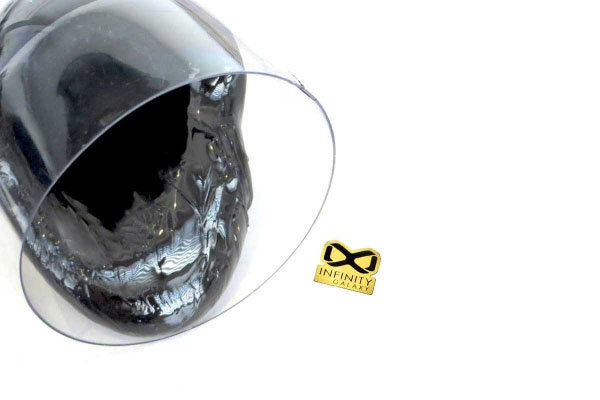One of these bituminous solutions that have many environmental and economic benefits is bitumen emulsion. Known also as emulsified bitumen, this material is a liquefied type of bitumen with low viscosity. By dispersing bitumen in water and adding an emulsifier, ordinary bitumen turns into a low viscosity liquid that can easily be used in a variety of applications, including repairing and maintaining roads, waterproofing, spraying, etc.
Bitumen emulsion was first used in road construction at the beginning of the 20th century. Currently, 5% to 10% of paving-grade asphalt is used in emulsified form. The global consumption of bitumen emulsion across the world is estimated to be 8 million tonnes, in a year.
Bitumen emulsion is a simple mixture of ordinary bitumen and water. For making the mixture more stable, a third component, which is an emulsifier will be added. Due to the lucrative opportunities in the bitumen emulsion market, many countries have turned to the production of this type of bitumen. Currently, major producers of bitumen emulsion are the United States, France, Mexico, and Brazil.
Emulsified bitumen is also popular in India and the Middle East. In July 2020, Indian Oil Corporation formed a joint venture with Total for production of high-quality bitumen emulsions. Major refineries in the Middle East, such as Pasargad Oil are also producing bitumen emulsion. The refinery has been reported to have four separate bitumen production units for production of cutback bitumen and bitumen emulsion.
The price of Bitumen Emulsion
Bitumen emulsion’s price is affected by ordinary bitumen’s price. However, the production of bitumen emulsion needs special technologies and technical expertise that not all bitumen manufacturers have. Emulsified bitumen needs to be mixed professionally with water, in order to stand the risk of being stored or transported for a long time. Otherwise, the bitumen emulsion droplets may sediment at the bottom of the drums.
As a result, there are only a few bitumen refineries in Asia and the Middle East has the required standards for producing bitumen emulsion. That’s why bitumen emulsion costs higher than ordinary bitumen.
What are Various Types of Bitumen Emulsion?
Bitumen emulsions have a wide variety of types and grades. The type and grade to be used in various applications depending upon the electric charge of the bitumen particles and the setting time.
In an emulsion, if the particles’ charge is negative, the bitumen emulsion is called Anionic and introduces itself with the letter “A”. Otherwise, the bitumen is known as cationic and have the “C” letter.
The setting or curing time is the amount of time that is needed for bitumen emulsion to penetrate the surface and lose water. Read more about bitumen emulsions’ setting time.
The setting time is the parameter that determines whether the bitumen is a rapid setting emulsion, medium setting emulsion, and slow setting medium.
Various types of bitumen emulsion and their globally standard names
|
Cationic Emulsions |
Anionic Emulsions |
|||||||
|
Rapid Setting (RS) Type |
CRS-1 |
CRS-2 |
RS-1 |
RS-2 |
||||
|
Medium Setting (MS) Type |
CMS-2 |
MS-2 |
||||||
|
Slow Setting (SS) Type |
CSS-1 |
CSS-1h |
Modified CSS-1h |
SS-1 |
SS-1h |
Modified SS-1h |
||
What is Bitumen Emulsion Used for?
Bitumen emulsions are widely used in cold techniques of road construction, which reduce the need for heating as well as lowering energy spending. According to Infinity Galaxy, one of the leading suppliers of bitumen emulsion in the Middle East, bitumen emulsions were introduced to the industry mainly for spray applications, however, they are currently used in both tack coats, micro-surfacing, chip seals, and also cold mix paving.
Tack coats: one of the main applications of bitumen emulsion is in tack coating. In this method, bitumen emulsion is applied between asphalt layers to promote bonding. Emulsified bitumen used in tack coats significantly increase the strength and fatigue life of pavements at a low cost.
Chip Seals: for renovating and waterproofing old roads we use chip seals. In this method of maintaining roads, bitumen emulsion is sprayed on the surface, followed by a layer of crushed rock (chips). The surface is then rolled.
Micro-surfacing: bitumen emulsion can also be used as an excellent treatment for rutted or irregular surfaces. In micro-surfacing, a mixture of bitumen emulsion, aggregates and mineral fillers is sprayed on the pavement to seal it.
What are the Advantages of Bitumen Emulsion?
Bitumen emulsion usage has increased in recent years, due to a rise in road recycling and repair rates. In 2016, more than 8 million tonnes of bitumen emulsion were consumed across the world.
Using bitumen emulsion in cold mix applications has many advantages to using cutbacks. The main advantages of asphalt emulsions are their lower application temperature, lower solvent content, low volatile emission, and their compatibility with the environment.
This article is an advertisement and Mehr News Agency has no opinion on its content.



























Your Comment